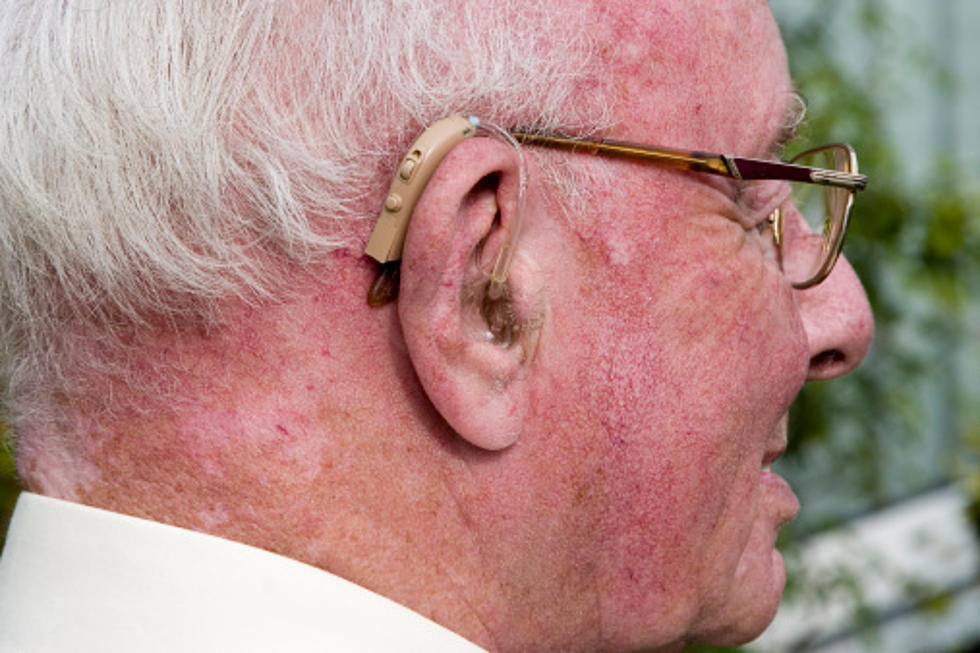
’42’ Review
My grandmother, Rhoda Singer, died earlier this year. She lived much of her life in Brooklyn and was a Brooklyn Dodgers fan. Her favorite player was Pee Wee Reese, the Dodgers' scrappy white shortstop who famously silenced a racist Cincinnati crowd by putting his arm around his black teammate Jackie Robinson during pre-game warmups.
I thought about my grandmother a lot while watching '42,' the new biopic of Jackie Robinson and his quest to break the color barrier in baseball. On an intellectual level, I can tell you a dozen things wrong with the movie, from its excessively preachy dialogue to its bloated length. But on an emotional level, I have to admit that this movie bypassed my brain and grabbed my heart, pulling each and every string contained therein firmly and repeatedly. It's a pretty good tribute to a great man. And when Pee-Wee and Jackie embraced on that field in Cincinnati I cried.
Most of '42's' most effective sequences come during its second half, once Jackie has made the Dodgers' big league team. The earlier scenes, though, set the tone: pious, respectful, and almost Biblically reverent of its subject. Before we meet Jackie, we meet the man who would throw him into the national spotlight: Dodgers owner Branch Rickey (Harrison Ford). He claims that he's motivated to introduce black players to the Major Leagues for purely financial reasons: African Americans are talented and hungry to prove themselves. Hiring them before anyone else could give the Dodgers the competitive edge -- it's old-school Moneyball, basically. The trick is finding the right player: one brave enough to face despicable racism, and brave enough to endure it without retaliation.
Enter Jackie Robinson (Chadwick Boseman), UCLA varsity athlete in four sports and World War II veteran who'd endured a court-martial after he refused to move to the back of a military transport. When Rickey offers Robinson a shot at The Bigs, he immediately calls Rachel (Nicole Beharie), his sweetheart in Pasadena, and proposes. Together, they face the trials of baseball desegregation together. Theirs is a sweet and tender relationship. When Jackie hits a home run, he always tips his cap to Rachel as he rounds third. When he can't find her in her seat, he searches the stands frantically until he spots her.
Rickey orders Robinson not to fight back when he's provoked -- to let his actions speak for him. '42' does not always follow Mr. Rickey's advice. There are some stirring sequences on the diamond that don't involve speeches, like the ones involving Jackie's stealing home, which are not only true to his style of hard-nosed play but also underline his quest to push through seemingly impossible obstacles to take what is rightfully his (and fiercely protected by those who don't want him around). But there are also scenes where the characters exchange too-perfect dialogue, crafted by '42' director Brian Helgeland, in lighting that is so warm and bright it seems to emanate from heaven itself. Nothing is left to interpretation; everything from the biggest Dodgers victory to the smallest gesture is laid out for us. It would be hard to overstate Jackie Robinson's importance to baseball and to American history, but '42' nearly does.
What keeps the material as grounded and as effective as it is are the performers, who all do a fine job of connecting us to the people behind these icons. Boseman, a former cast member on the television series 'Lincoln Heights,' perfectly captures Robinson's fierce competitive spirit and his stoic determination, and he creates a palpable bond with Beharie. Christopher Meloni provides some nice notes of comic relief as Dodgers' manager Leo Durocher; after Durocher is forced out of the Dodgers' organization, John C. McGinley unofficially assumes his thematic position in the narrative by channeling the lively wit of radio announcer Red Barber.
On the opposite end of the spectrum, Alan Tudyk is supremely despicable as Philadelphia Phillies manager Ben Chapman, who in one extended sequence brutally heckles Robinson from the Philly dugout with an unending stream of racial epithets. Harrison Ford doesn't particularly look like Branch Rickey, and he gives the man a growly voice that, accurate or not, is almost laughably cartoonish, but credit where credit's due: for an actor who's seemed increasingly content in recent years to phone in his performances -- and phone them in from long distance, at that -- he is very present and very committed to this part and to this movie. When he finally opens up to Jackie Robinson about the real reason he brought him to the Dodgers, he breaks down in tears. So did I.
'42' suffers inevitably from biopicitis -- that urge to boil everything in a biographical film down to a relatively undramatic string of loosely connected, carefully enunciated events tied together with dated title cards. "This happened, then this happened, then this happened." It's preachy and obvious in a way that suggests Helgeland may have designed it specifically for children, and even if mainstream audiences reject '42,' the film should still have a long life ahead of it as a teaching tool in classrooms around the country.
But for all the scenes that misfire there are an equal number that work. Helgeland uses a handheld camera to bring an intensity to the scenes on the field; nipping at Jackie's heels as he runs so that his cleats kick dirt onto the lens, following a ball from the pitcher's hand to the catcher's glove as it whizzes dangerously close to Robinson's unhelmeted head. And he nails a few iconic moments, like the ones with the racist Chapman, or the charming exchange in the Dodgers locker room between Jackie and his teammate Ralph Branca (Hamish Linklater) in which the latter tries to convince him that he needs to shower with the rest of the team. And then there's that beautiful, simple scene in Cincinnati, where good old Pee Wee Reese (a well-cast Lucas Black) rejects the warnings of racist thugs and warmly hugs his teammate.
I think my grandmother would have liked this movie.
'42' debuts in theaters Friday, April 12.
Matt Singer is a Webby award winning writer and podcaster. He currently runs the Criticwire blog on Indiewire and co-hosts the Filmspotting: Streaming Video Unit podcast. His criticism has appeared in the pages of The Village Voice and Time Out New York and on ‘Ebert Presents at the Movies.’ He lives in Brooklyn with his wife, dog, and a prop sword from the movie ‘Gymkata.’










